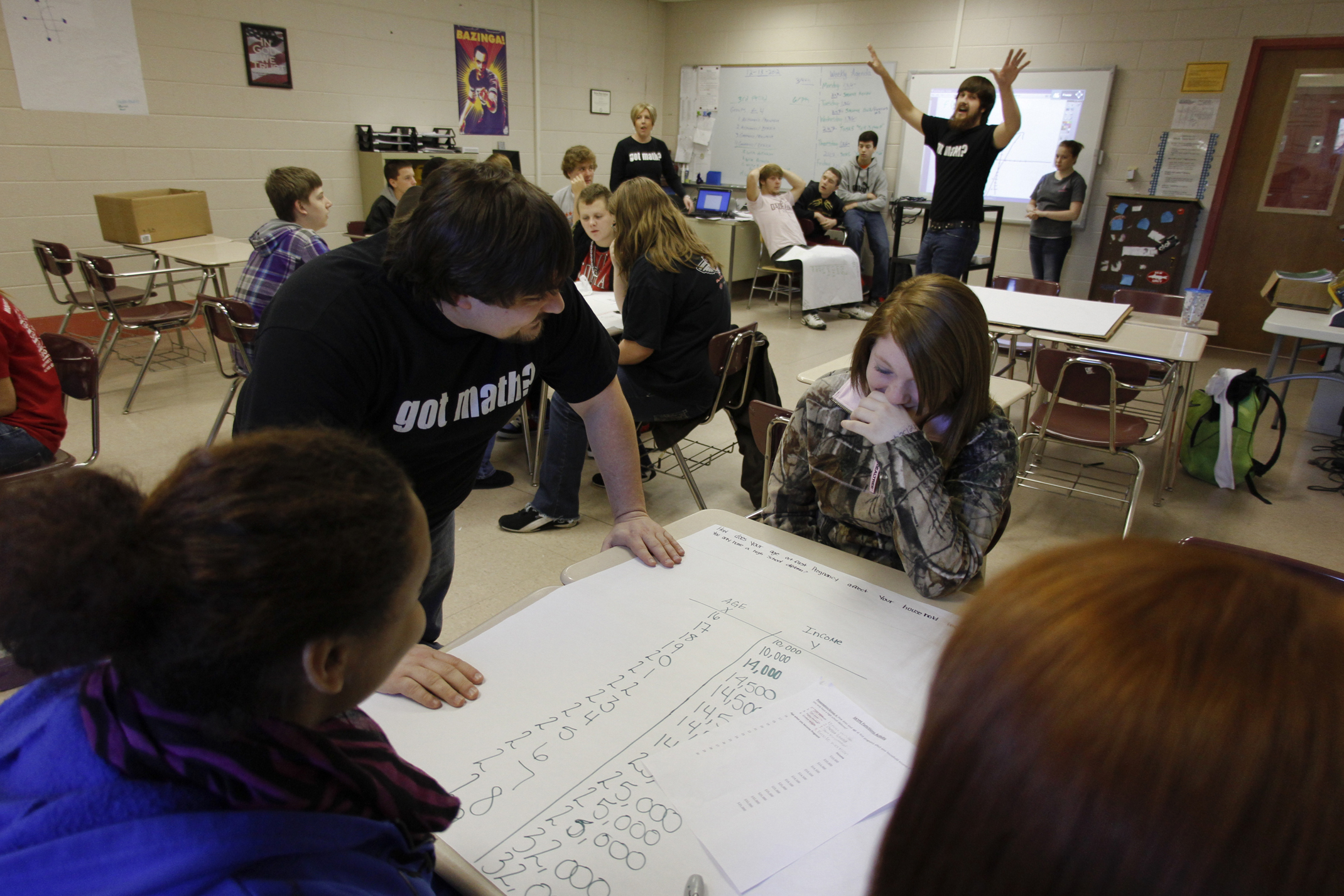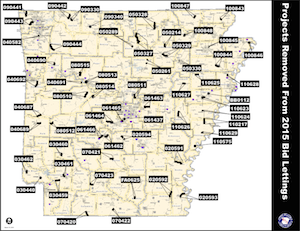Dade County Schools officials hope push adds up to better scores
Friday, January 1, 1904
LAGGING MATH SCORESThe percentage of 3rd grade students who did not meet expectations in math in 2011 by school district and grade:Dade County* 27 -- Third grade* 20 -- Eighth gradeCatoosa County* 16 -- Third grade* 15 -- Eighth gradeWalker County* 17 -- Third grade* 10 -- Eighth gradeGeoriga* 19 -- Third grade* 14 -- Eighth gradeSource: Georiga Report Card, 2011
TRENTON, Ga. - There's a math bug going around Dade County. And it's affecting more than just the schools.
Dade County Schools officials say their broad effort of pushing math is a first-of-a-kind attempt to unite all students and teachers from kindergarten to graduation under a common goal. Inaugurated this fall, the "Math Matters" campaign is involving teachers of all subjects at all grade levels.
The campaign has a simple goal: to improve math scores systemwide. While the school district excels on state reading tests, math scores have continued to lag, a common phenomenon for school systems across the state.
To raise achievement, the district is asking more of all its teachers. Math teachers are adding more hands-on lessons that connect to real-life situations. And teachers in English, social studies and science are weaving more math concepts into their lessons. Even Project Synergy, Dade County's heralded student entrepreneurship competition, will center on math this year.
But the reach of the program goes even further, with local businesses and community members jumping on board.
The district has put up billboards and issued T-shirts to teachers emphasizing the importance of math. Teachers televise math lessons several times a month, and a kid-created math problem is posed to listeners and viewers on local television and radio each weekday. Community members call in the answers, and their prizes are donated back to the students who created the problem.
"It takes a village to raise math achievement," said Sandy Bradley, the district's math coach. "The math teachers can't do it alone. It's too big."
Research shows that high school math ability is one of the best predictors of college success, Bradley said. And how well students do on high school math is linked to how well they did on fifth-grade fractions.
"It all ties together," she said.
Changing math's stigma
Dade County teachers say they're working to make math more meaningful to students.
"Math has not always been applied to real life," said Dade County High math teacher Sean Martin.
So teachers are trying to find real-world connections.
Ninth-graders from one of Martin's classes recently live-streamed some of their own projects over the local television station. Students' research found the direct correlation between education level and income. They showed how people with more advanced degrees are much more likely to have a retirement plan. And the younger a mother is at her first pregnancy, the students found, the less money she is likely to earn.
Students used functions and T charts, but used them in a way that they can directly relate to, Martin said.
"They're coming around," he said. "I think it's going to be a big change."
Stunts like being featured on live TV or radio have drummed up excitement among students, teachers say. But it's the everyday learning that is starting to change attitudes toward math.
Students who are able to more deeply explore concepts and find connections to their own world are more willing to put in effort, said Dade Elementary teacher Amber Barton.
She said students are increasing their vocabulary, improving their ability to complete tasks on their own and thinking more creatively.
"This is getting them excited about math," she said. "And if they're excited about something, they're going to go above and beyond what's asked of them."
It's important to get them excited in the early grades, because math concepts build upon themselves. And the minute students grow frustrated they can fall woefully behind. Barton likens the subject to the process of constructing a building.
"If you don't have the foundation," she said, "you're not going to be able to build your walls."
That's just one of the reasons the community has picked up the Math Matters campaign.
Carol Varnell, a retired nurse living on Lookout Mountain, Ga., is a faithful listener to the math problem of the day each weekday. She likes to be the first one to call in with the right answer.
But she realizes the project is about more than just testing her own smarts. Kids do enjoy their few minutes in the spotlight, but Varnell said she hopes there's a more lasting impact.
"I just think it's a wonderful thing we're doing for our kids," she said. "If we can get them interested in the lower grades and want to learn and stay in school, then hopefully we don't have to worry about them dropping out."
Project Synergy
Started in 2007, the county's Project Synergy competition will expand to all grades this year as students design businesses and products centered on math.
The brainchild of Dade Middle School teachers Matt Jelley and Tom Randolph, Project Synergy is aimed at connecting education, businesses, community and governments. Students create from the ground up their own "companies," build business plans and models and present them before local "investors."
And this year it, too, is all about math.
One group of elementary students is creating a comic book featuring the characters Dr. Decimal and Fractoman. A middle school group has put a math spin on basketball with its "masketball" game. And a team of high schoolers plans to teach the quadratic equation through rockets.
Students say the project also is making math more accessible. And more fun.
Fourth-grader Basil Nakhlel said he's enjoying math much more since first starting to create a game to teach division with Legos.
"I think it's way more fun with Legos," he said. "Everybody loves Legos."
Jelley said community members are often itching to get involved in public education, but don't know how. But now Project Synergy and the broader Math Matters initiative offer plenty of ways for locals to play a role in schools.
"We've got the potential to be an entire community that's focused on math," Jelley said.

